Navigation auf uzh.ch
Navigation auf uzh.ch
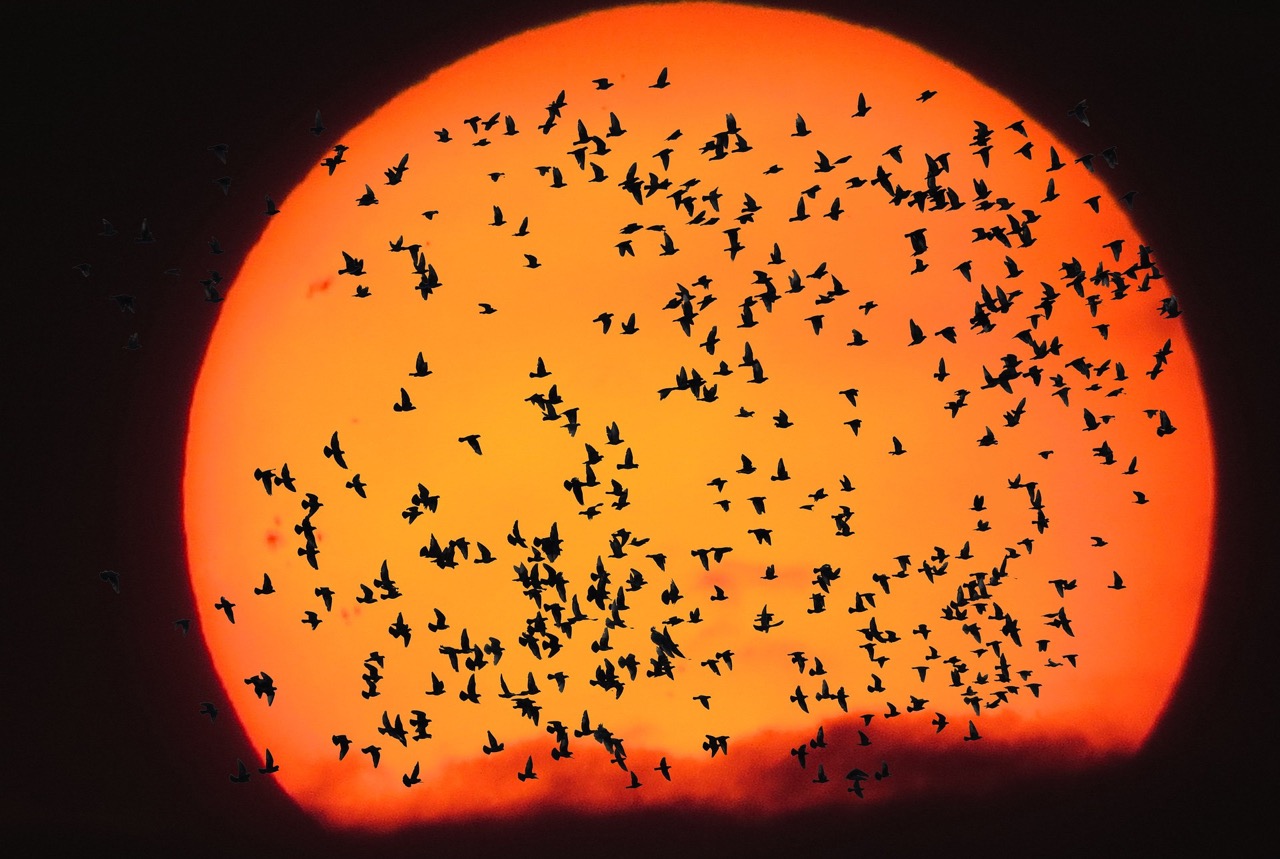
A team from GIUZ and the Swiss Ornithological Institute studied how migratory birds cross the Swiss Alps for the first time using year-round radar measurements: migration intensities, flight altitudes, speeds and directions were monitored. It turned out that migratory birds use the Alpine valleys and adjacent passes as passages. This has important implications for their protection, as valleys and pass crossings are also potential sites for wind turbines.
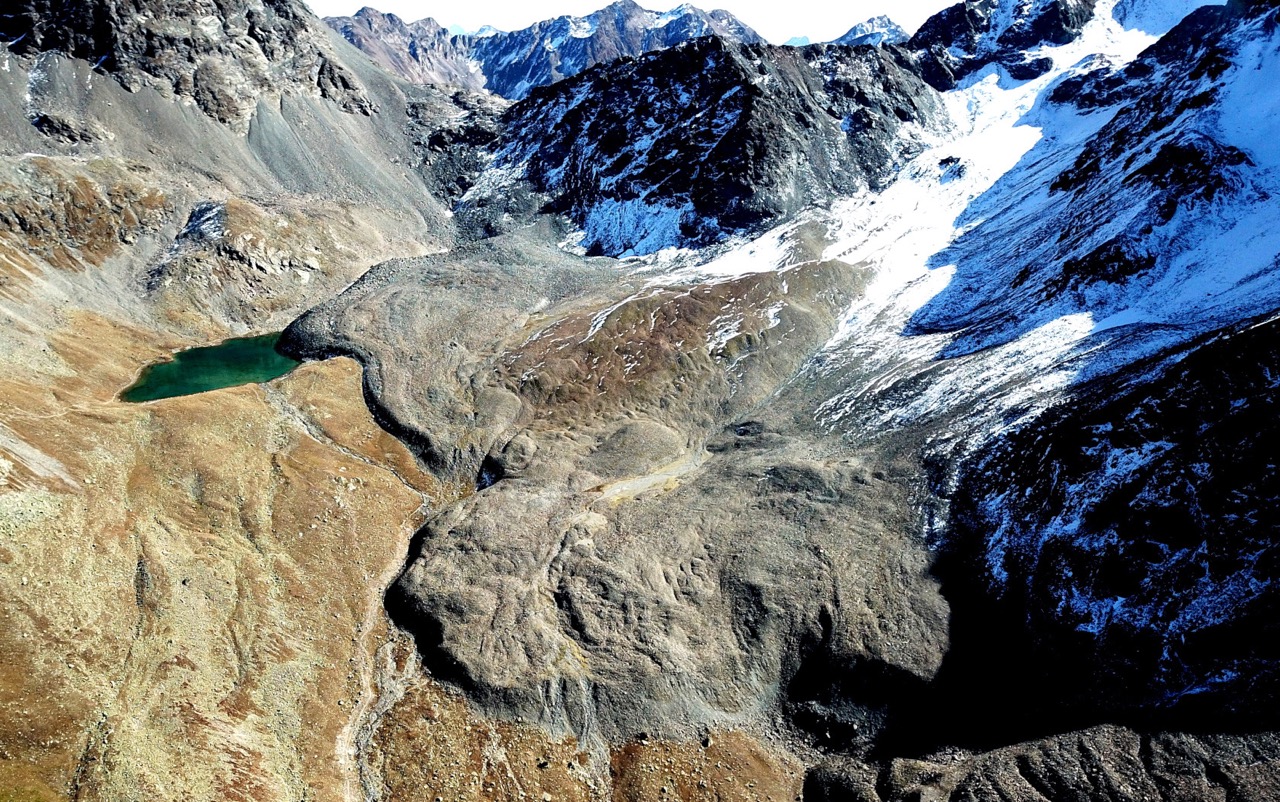
Rock glaciers are a mixture of debris and ice that are permanently frozen on the inside all year round. They slowly creep downhill, and since the 1990s they have been creeping faster and faster. This makes them a reliable climate indicator, as a recent international study involving the GIUZ has shown.
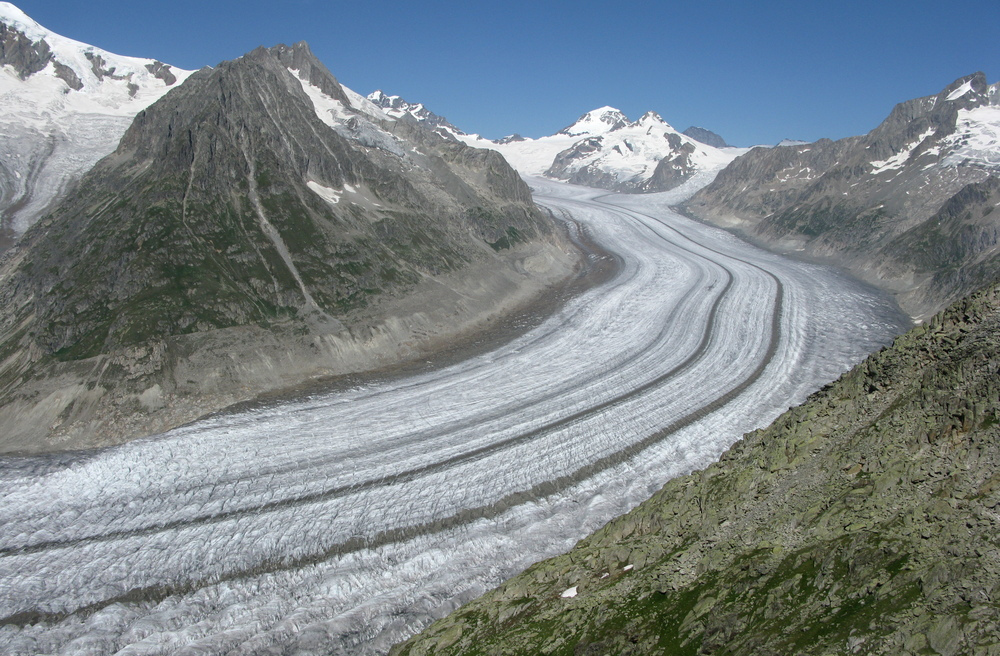
Even if greenhouse gas emissions were to cease altogether, the volume of ice in the European Alps would fall by 34% by 2050. If the trend observed over the last 20 years continues at the same rate, however, almost half the volume of ice will be lost as has been demonstrated by a new international study, co-authored by GIUZ scientists.

2023 was the hottest year on record worldwide. The past few years have also been marked by several extreme heatwaves, leading to massive health risks and increased mortality. Adaptation is now at the top of the global political climate agenda, on a par with mitigation. To make forward-looking, evidence-based decisions, we need to adopt an integrative perspective in research, argues a recent paper published in The Lancet Planetary Health. The authors outline six building blocks needed as part of a more integrated research framework.
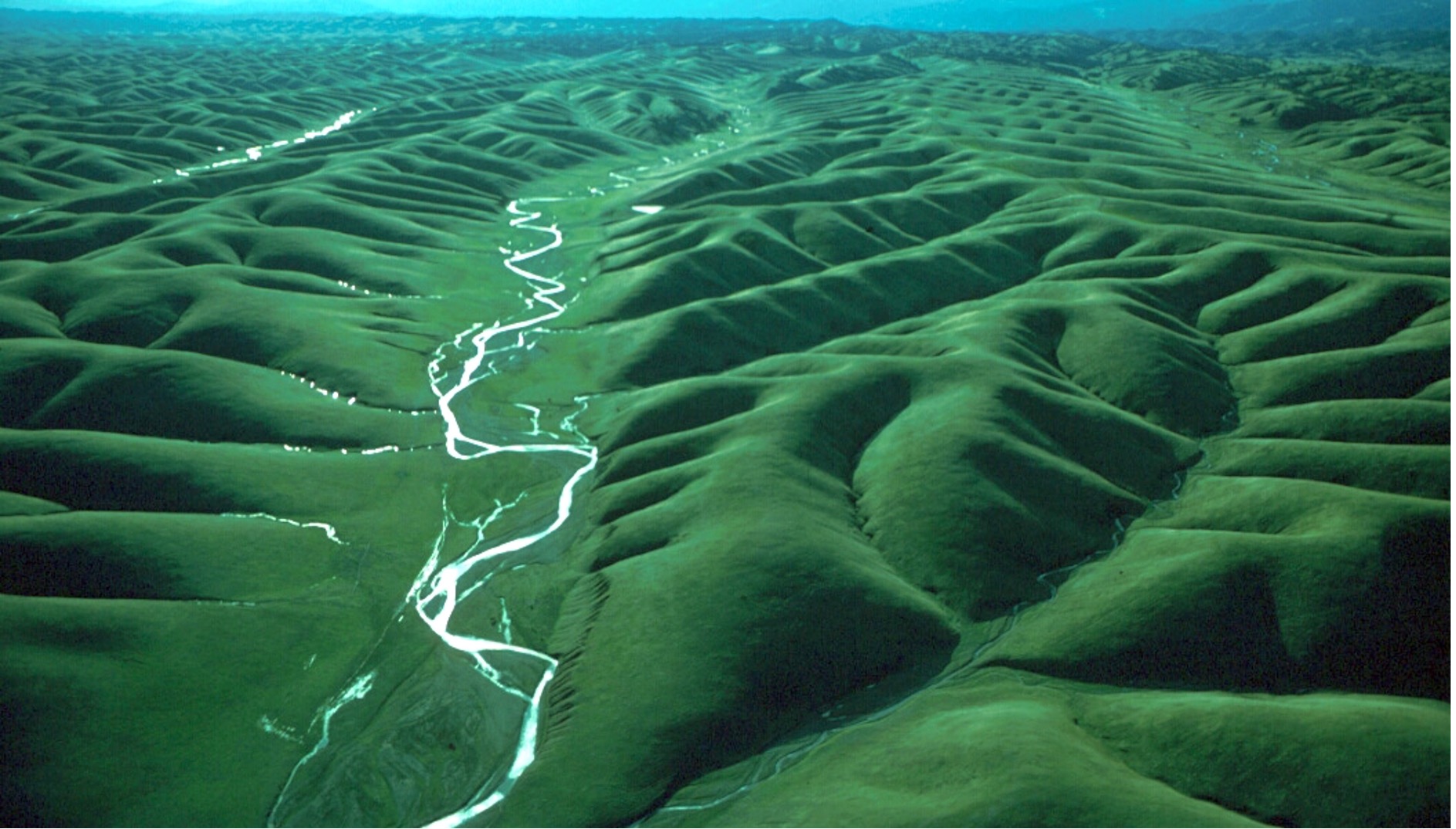
River networks are striking features engraved into the surface of the Earth, shaped by uplift and erosion. It is still unclear which erosional mechanisms created these distinctive geometric signatures on Earth. A new paper shows the contribution of groundwater to shaping river network branching angles.
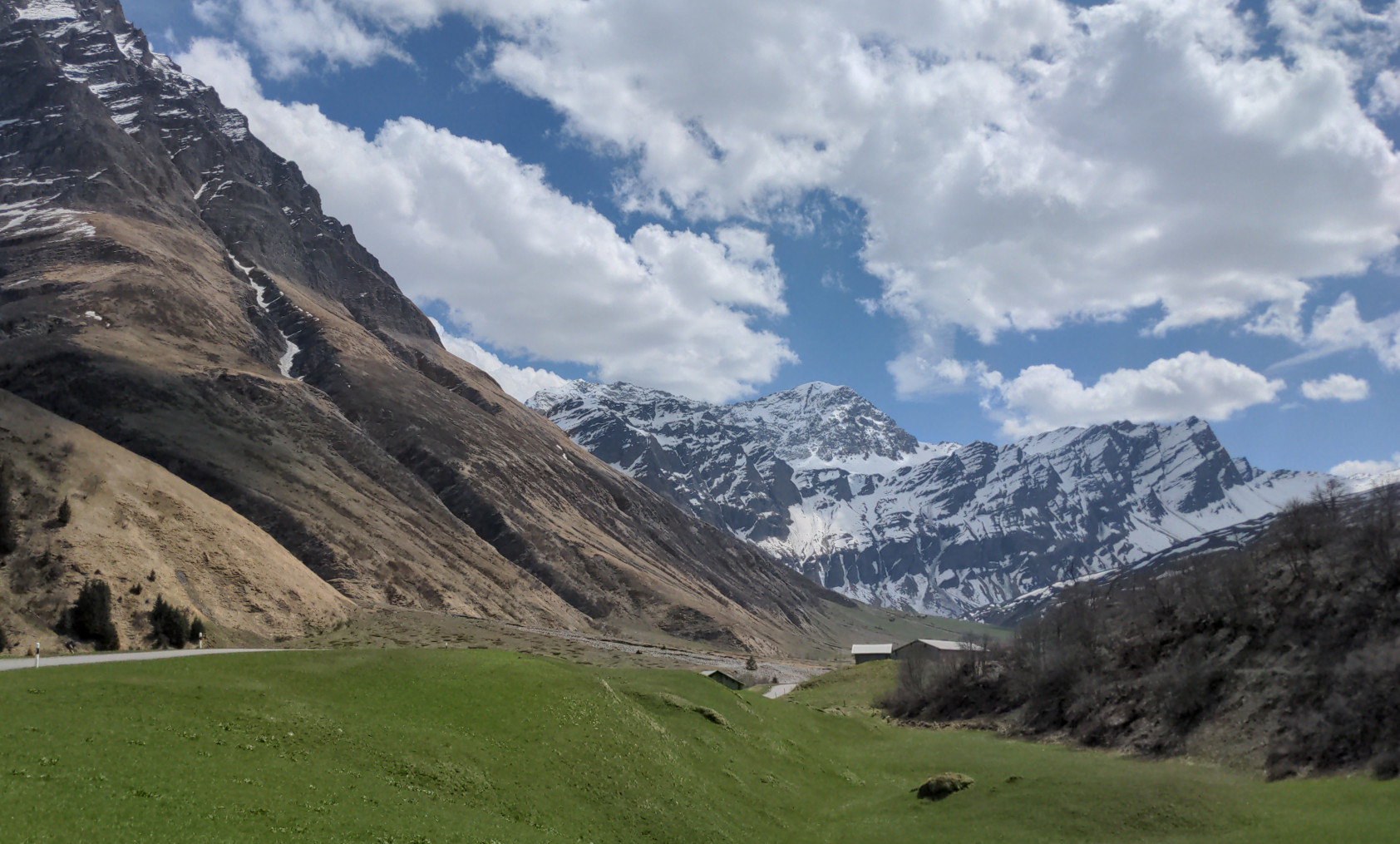
You don’t know? That’s maybe because you have not visited all twenty of them (yet)? Fortunately, you might not need to use your precious free time to empirically determine your favourite park. A recent publication might offer a more efficient way, by providing you with some guidance from the crowd: A team of researchers from the Department of Geography created profiles of Swiss parks with user generated content for you to find the one you like.
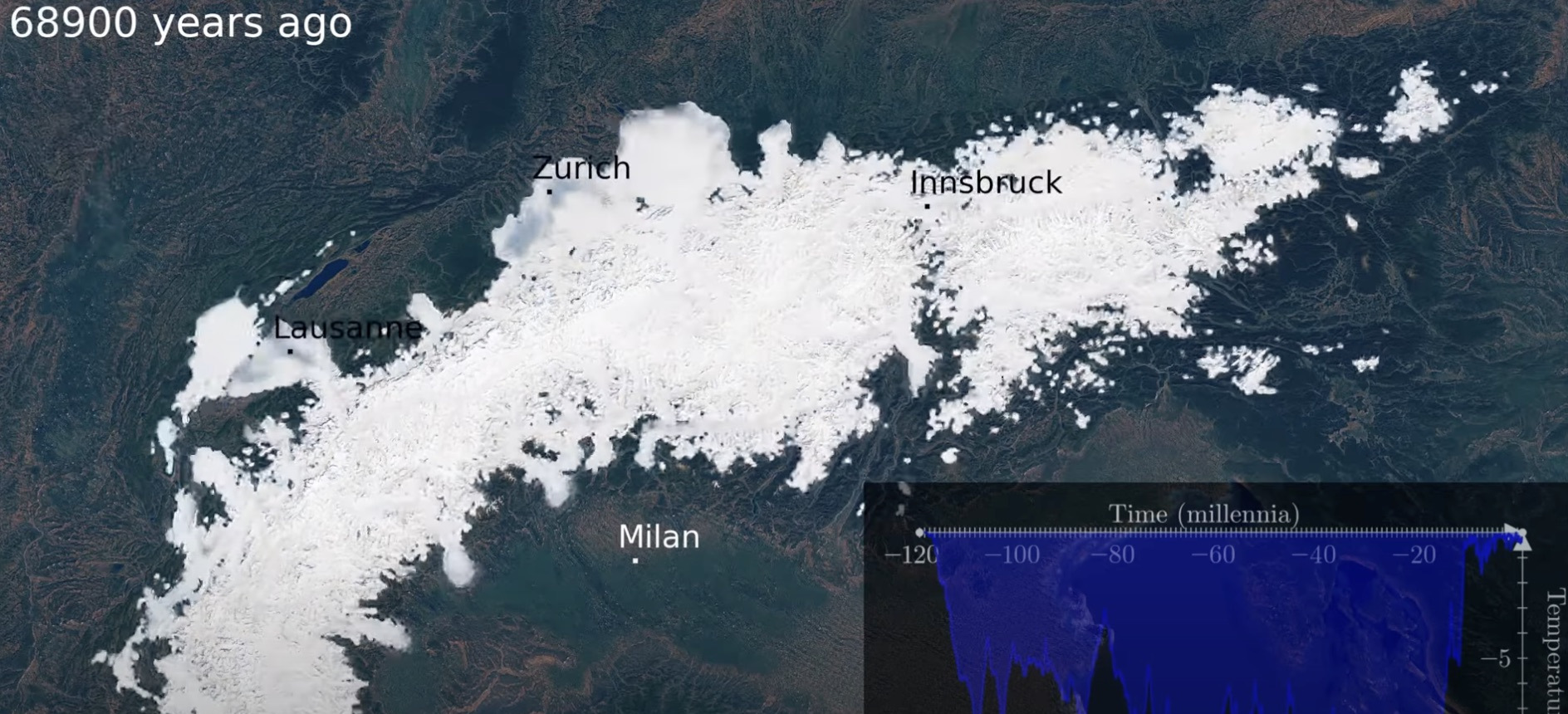
Scientists from the universities of Zurich, Lausanne and Bern have developed an unprecedented simulation which, in just 80 seconds, shows the evolution of glaciers in the Alps over the last 120,000 years. This complex computer model is the fruit of intensive collaboration between climatologists, glaciologists, and geologists.
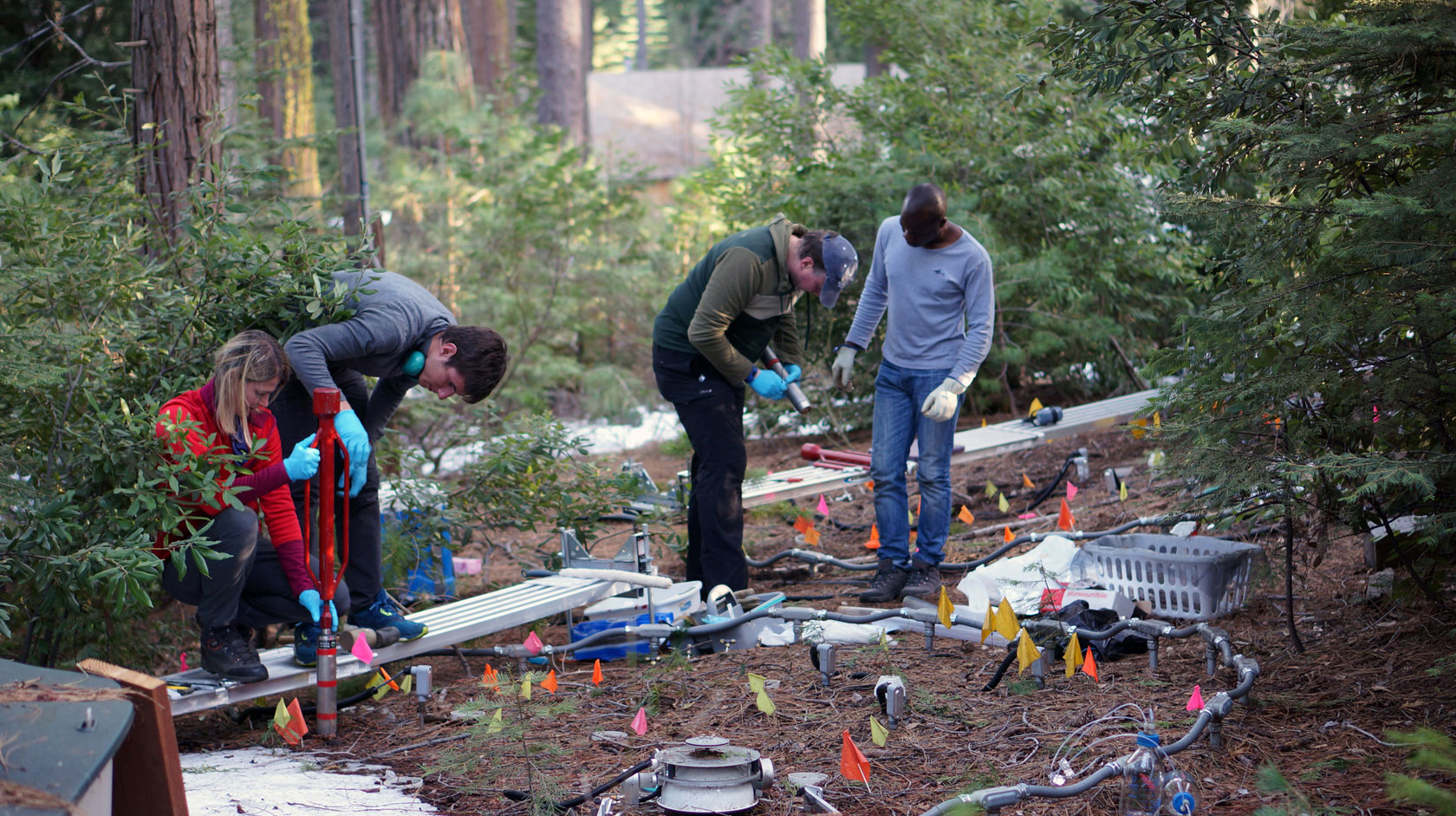
Subsoils are the largest storehouses for carbon, as well as one of the most important sources of carbon dioxide in the atmosphere. Global warming is accelerating the decomposition of soil humus. It is also affecting the waxy and woody compounds which help plants store carbon in their leaves and roots and were previously thought to be stable. These are the findings of a study conducted by researchers from the Department of Geography in the Sierra Nevada National Forest.
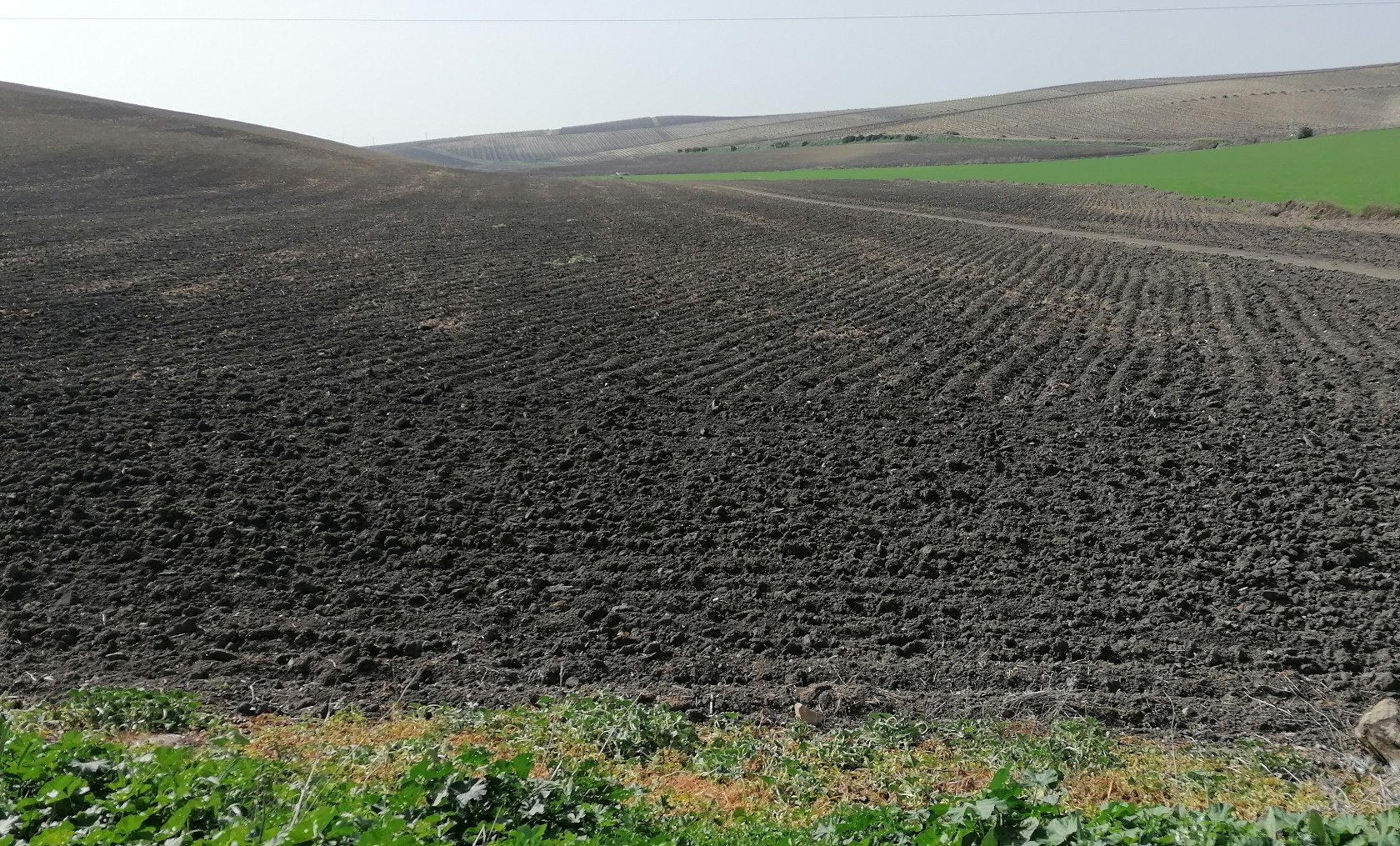
Microorganisms play a key role in soil carbon storage, as shown by an international collaborative study involving researchers from the Department of Geography. Microbial carbon use efficiency is at least four times more influential than other biological or environmental factors when it comes to global soil carbon storage and distribution. The results have implications for improving soil health and mitigating climate change.
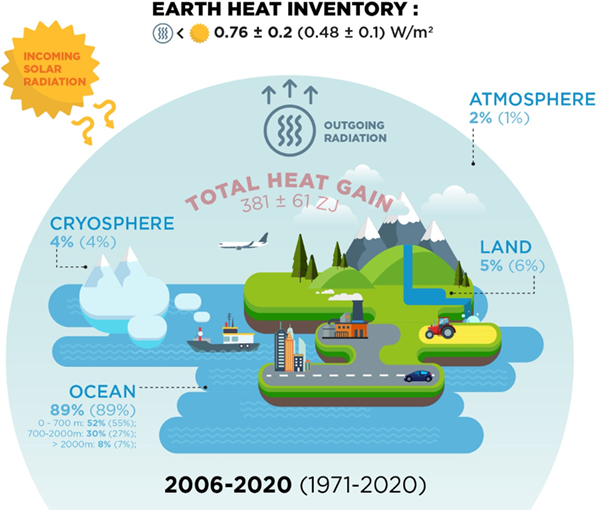
Our "out-of-balance" Earth accumulates more energy than it loses. But how much and where? An international, multidisciplinary research team used carefully calibrated, cross-checked, and well-documented data from the ocean, land, ice, and atmosphere. The World Glacier Monitoring Service (WGMS) contributed the glacier data and calculations.
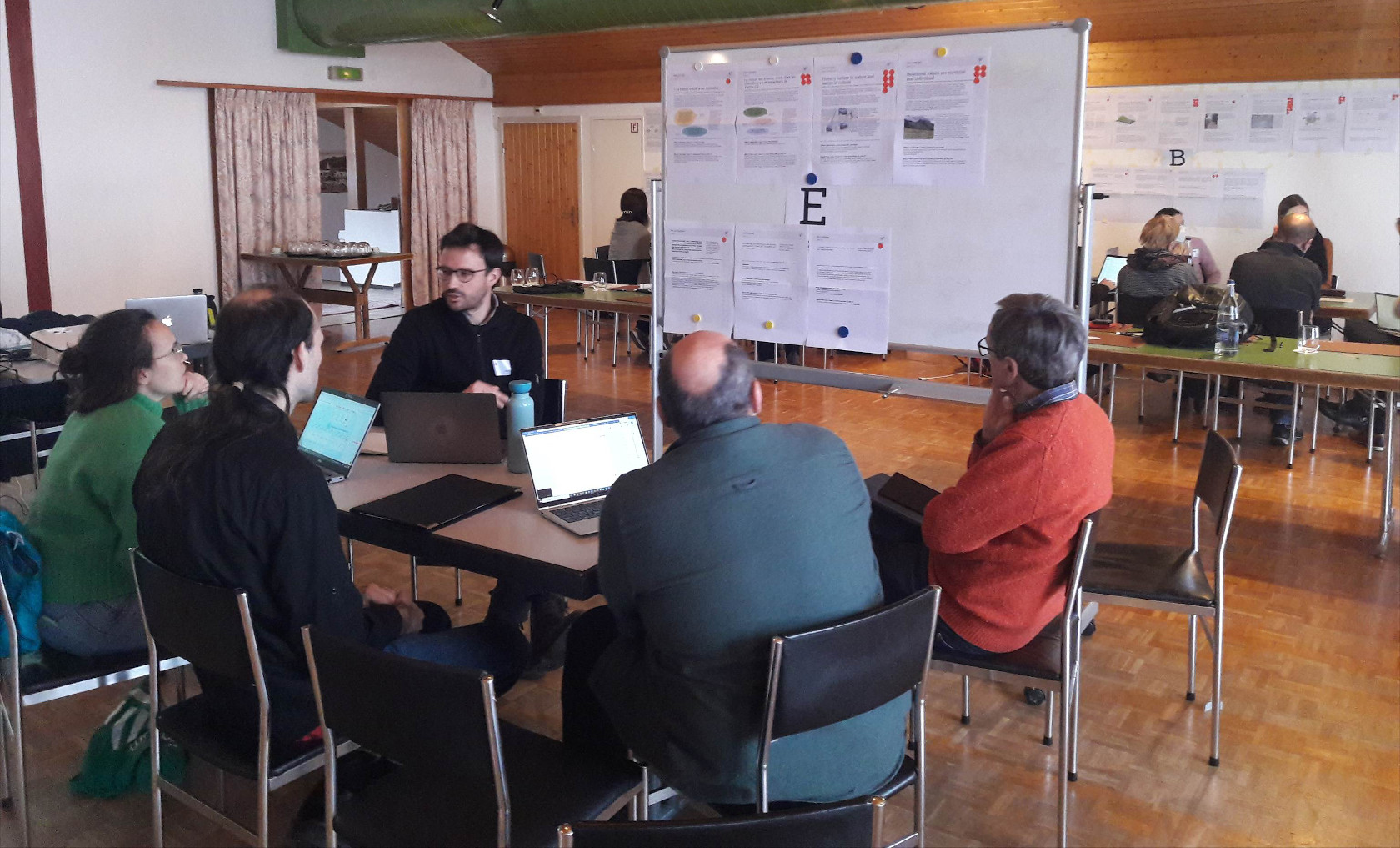
The impact of our research is often measured in the number of publications or related indices. The impact on policies and practitioners is more difficult to assess and less recognized in academia. With this initiative, we aimed to strengthen the societal relevance of our research by fostering different pathways of science-policy-interfaces.
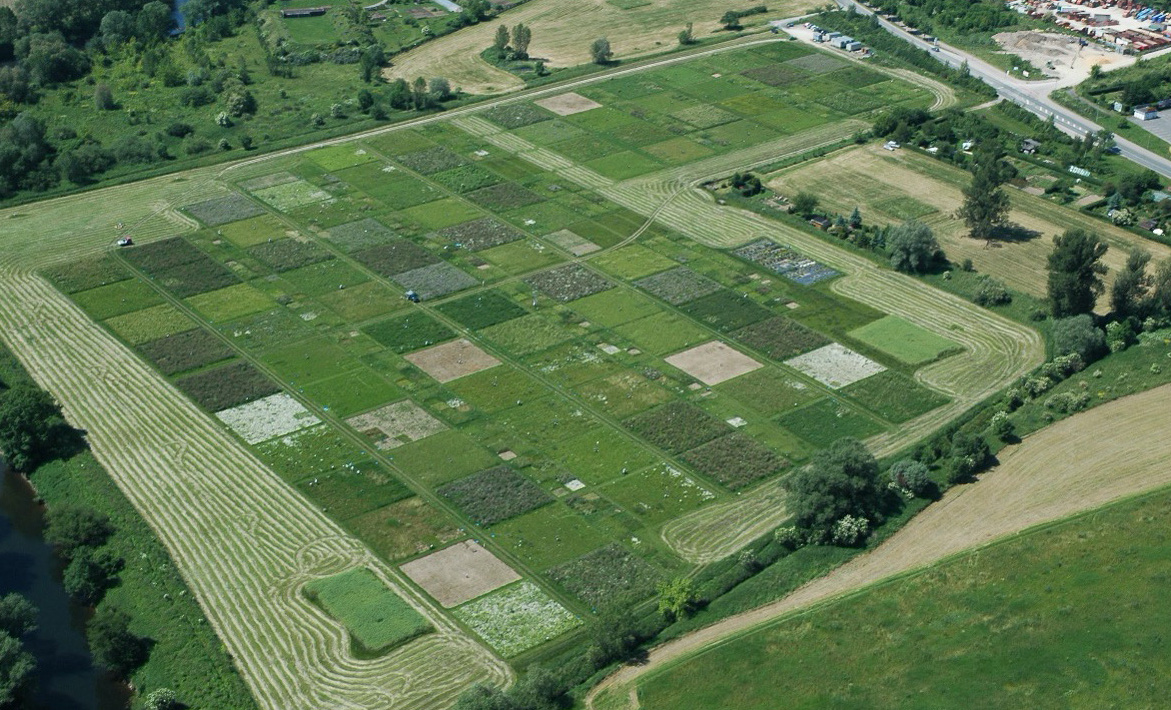
Reduced biodiversity affects the stability of the entire ecosystem. A long-term experiment now shows that grassland plant communities with multiple species need about 10 years to adjust to each other and produce an even amount of biomass again.
_100x604_web.jpg)
This question is often asked but not easily answered. It depends on how a glacier is defined and on the availability, quality and consistency of digital glacier outlines at a global scale. A joint paper by the US National Snow and Ice Data Center and the World Glacier Monitoring Service now provides the answer.
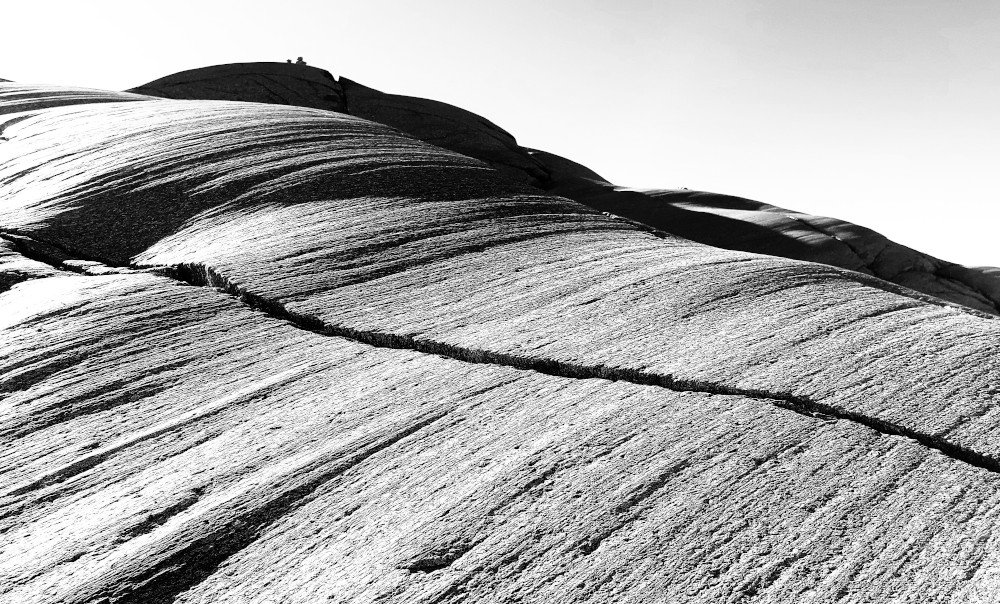
Newspapers, travel diaries, policy documents and even fiction offer rich material capturing relationships between people and surroundings. A new book explores the possibilities and advances in computational analysis of natural language.
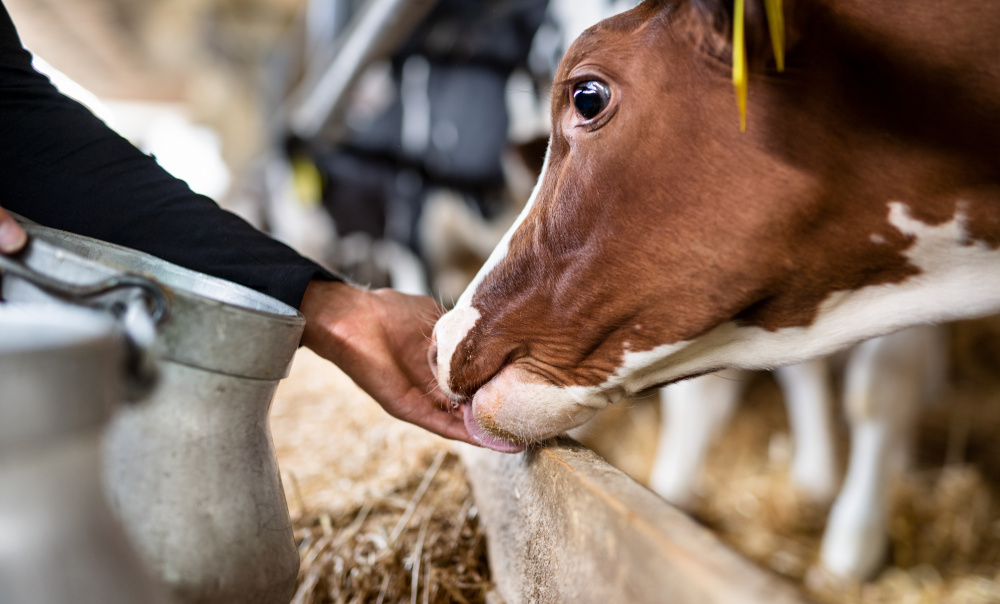
Should we protect nature for its own sake or for people’s sake? In this paper we study a third kind of reason to protect nature – the relationships between people and nature. However, sustaining them requires physical, emotional, and socio-economic resources.

Oder würden Sie eher sagen «ober mal hürate wett»? Die räumliche Verteilung grammatikalischer Muster im Schweizerdeutschen untersuchte ein interdisziplinäres Team der Universität Zürich und der EPFL und zeichnete damit die Spuren historischer Migrationen nach.
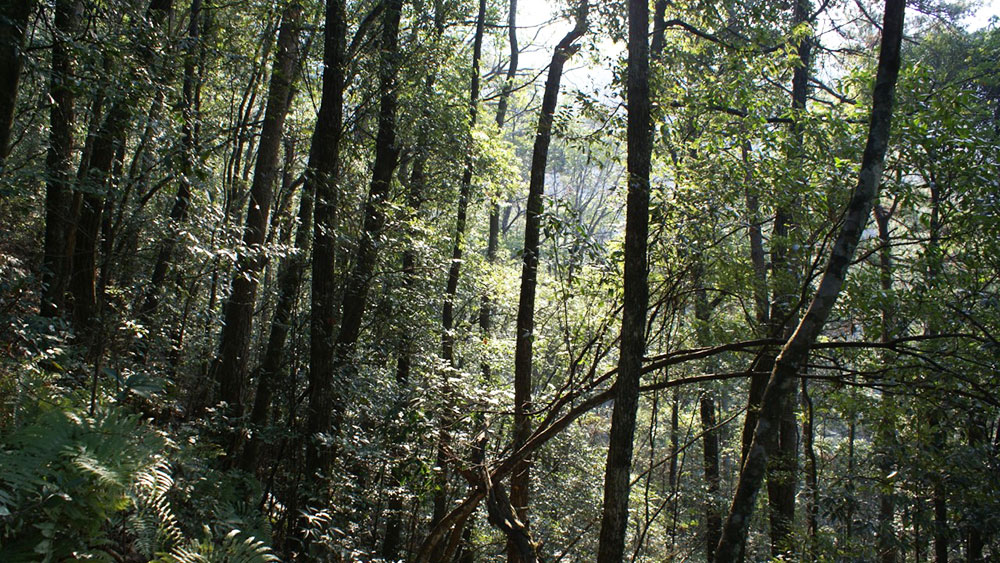
Multispecies tree plantations are more productive than monocultures, according to a new study carried out in China. GIUZ environmental scientist Bernhard Schmid was involved in the research.
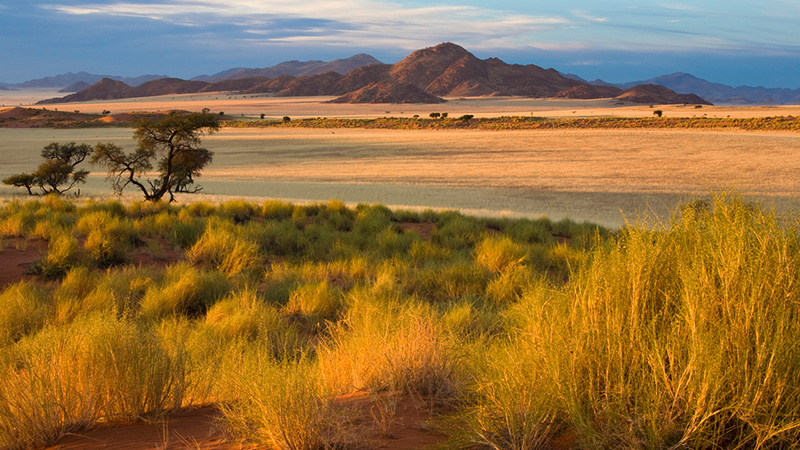
When a plant community is exposed to drought, the different species undergo evolutionary changes. An international study with GIUZ participation now shows that this leads to improved resilience to future drought stress over time.
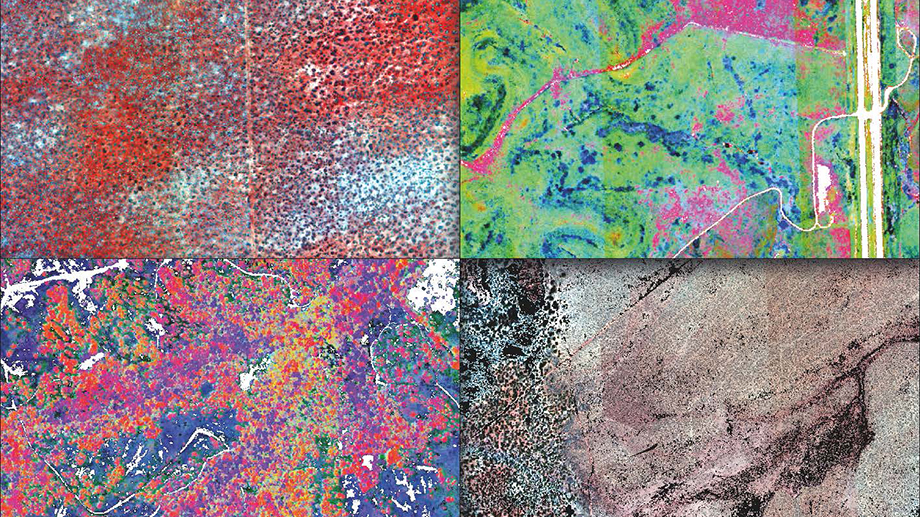
Global biodiversity assessments require the collection of data on changes in plant biodiversity on an ongoing basis. Researchers from GIUZ and the University of Montréal have now shown that plant communities can be reliably monitored using imaging spectroscopy.
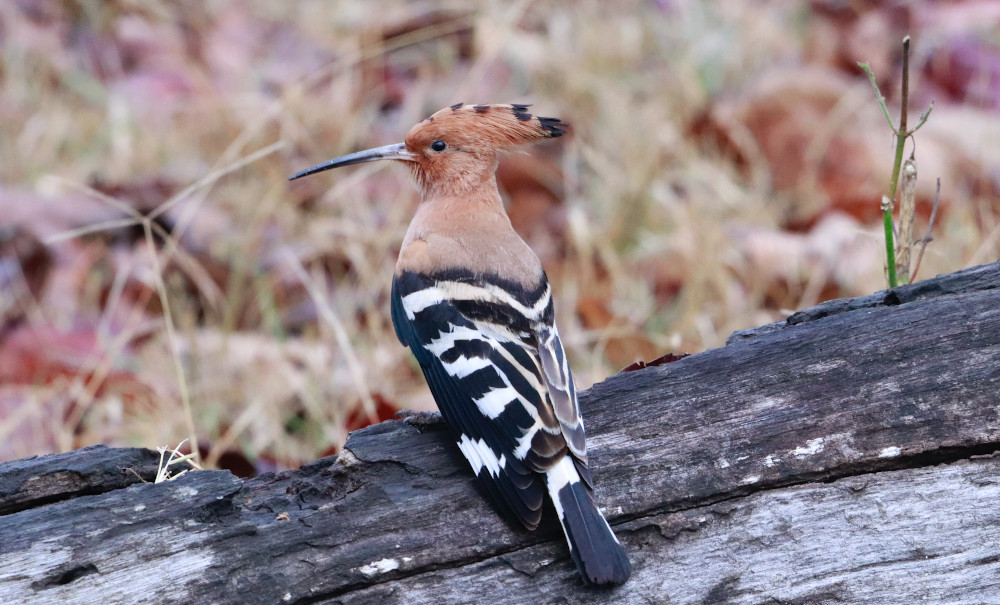
To protect endangered migratory birds, we need to know their flight paths. But some birds are too small to carry a GPS tracker. By combining light, activity and wind measurements, their most likely route can be accurately estimated.

A new navigation system lets pedestrians decide for themselves which route to take in a given area. In this way, they can better acquire spatial knowledge and have a lot of fun during navigation.
Healthy soils are key to maintaining ecosystem services provided by agriculture. New organic practices can help, but require incorporating traditional knowledge and the needs of local farmers.

An international team with the participation of researchers from the Institute of Geography succeeded in identifying global factors that explain the diversity of form and function in plants.
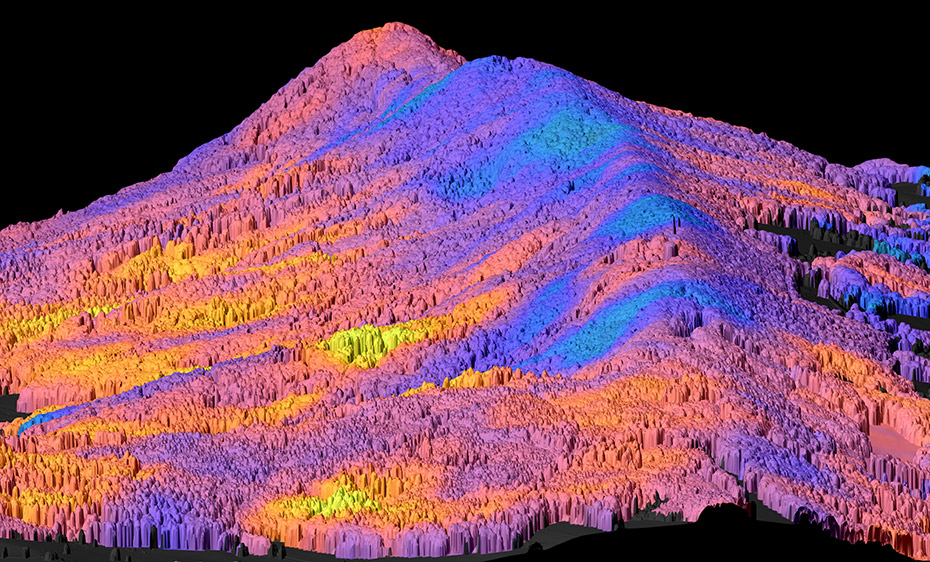
Satellites and other remote sensing tools offer new ways to study ecosystems – and maybe even save them. Members of GIUZ and the URPP Global Change and Biodiversity are part of this international, transdisciplinary effort.

The coronavirus primarily affects our bodies, but it also has massive impact on our mental health. GIUZ researchers use Twitter content to detect emotional stress related to the COVID-19 pandemic across space and time.
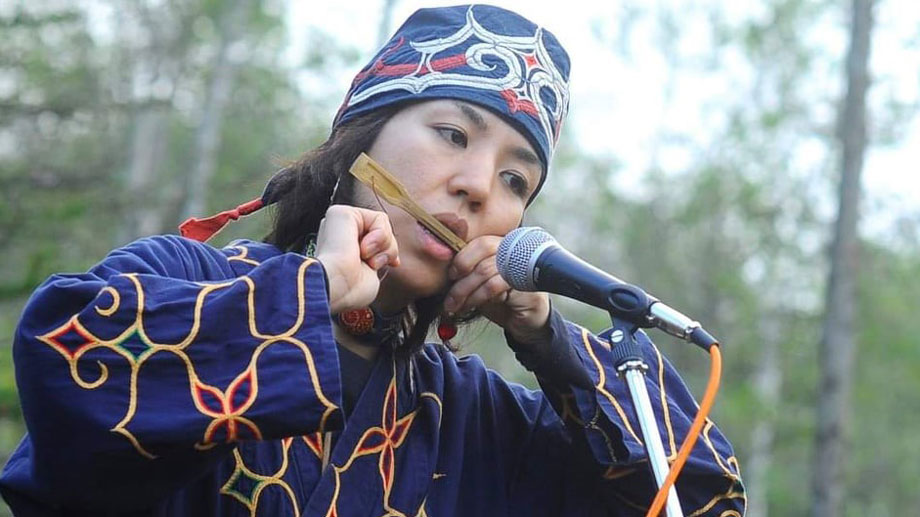
Humans have been always on the move, creating a complex history of languages and cultural traditions dispersed over the globe. An international team under UZH’s lead has now traced families of related languages over more than 10,000 years by combining data from genetics, linguistics and musicology using novel digital methods.
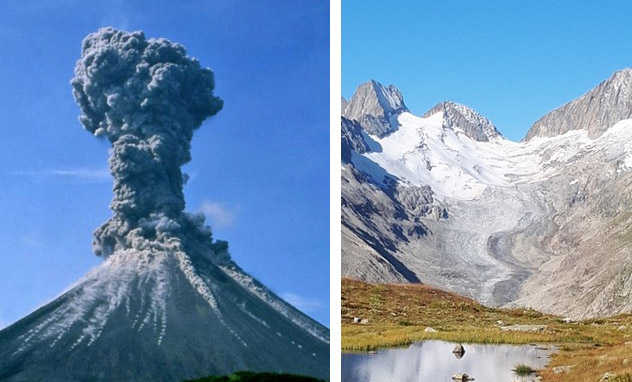
Large volcanic eruptions were thought to lead to a mass gain and an advance of glaciers worldwide. Whether this could happen again under current climatic changes was investigated by Michael Zemp, glaciologist at GIUZ, and Ben Marzeion, climate scientist at the University of Bremen.
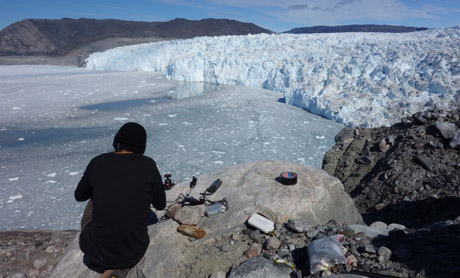
An international team with the collaboration of GIUZ researchers has developed a new model for simulating both iceberg calving and the tsunamis that are triggered as a result. Their method can help improve hazard assessment in coastal areas.
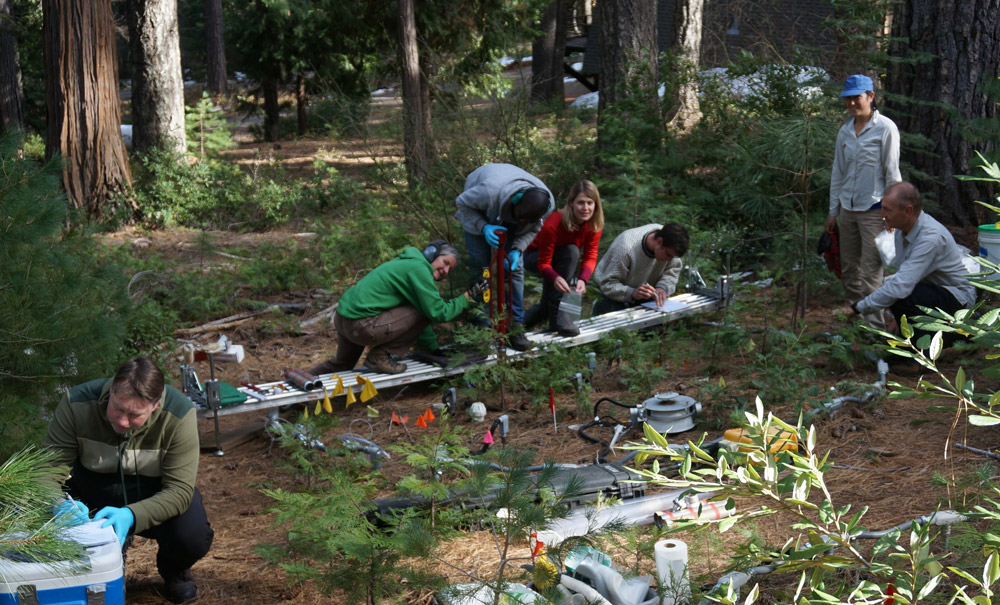
Projected climate warming will lead to more soil respiration by microorganisms, releasing even more greenhouse gases. This will further accelerate global warming.
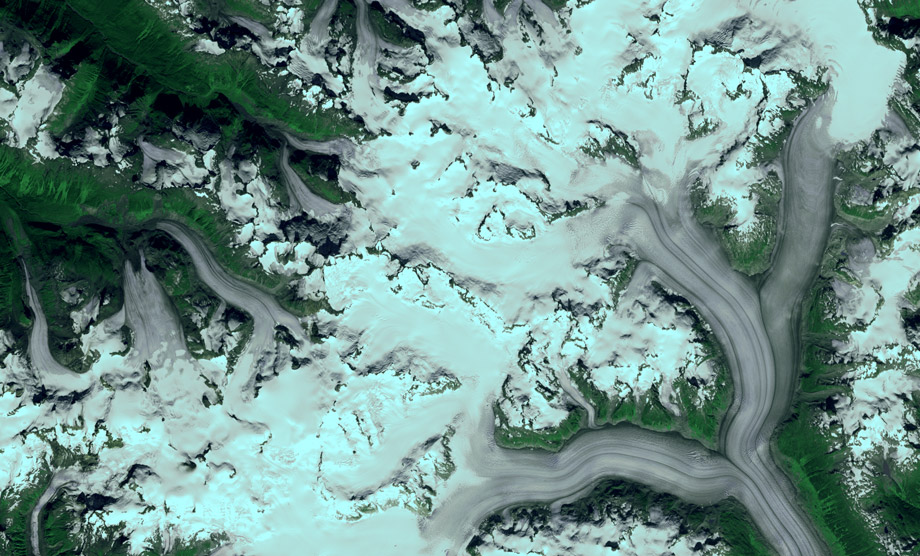
An international research team has shown that almost all the world's glaciers are becoming thinner and losing mass - and that these changes are picking up pace. The analysis is the most comprehensive and accurate of its kind to date.

In the event of a pandemic, delayed reactions and a decentralized approach by the authorities can lead to longer-lasting, more severe and more fatal consequences. An interdisciplinary team compared the Spanish flu of 1918 and 1919 in the Canton of Bern with the coronavirus pandemic of 2020.
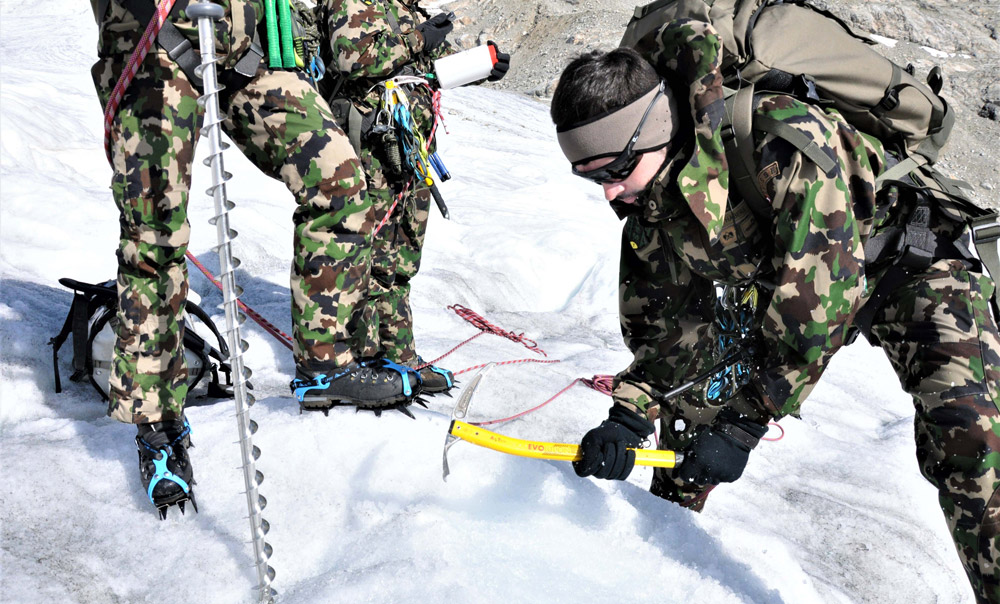
Precisely when will the long-lost US aircraft “Dakota” re-emerge from the Gauli Glacier? Radioactive traces from the Cold War now indicate that this will happen soon.
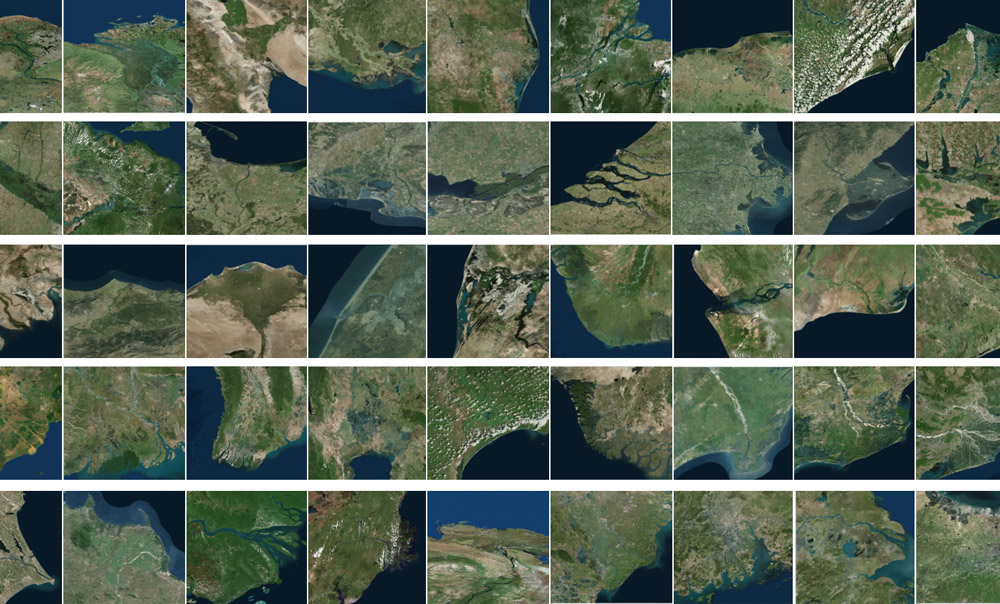
Deltas have historically been the focus of human development. Some deltas became locked-in, too costly to return to natural states. Researchers conducted a historical analysis on anthropogenic pressures over the past 300 years over 48 deltas world-wide.

It’s not just the coronavirus that’s making young people spend their evenings at home. When they are not under the watchful eyes of parents, home can be a place of autonomy and intimacy.
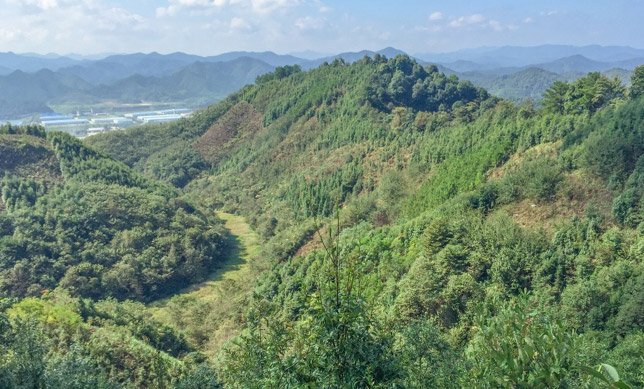
At high species richness, directed loss, but not random loss, of tree species strongly decreases forest productivity. Previous studies based on random species loss could therefore bias the predictions of how more realistic extinction scenarios are likely to affect ecosystem functioning.

Mobility is one of the key factors for maintaining health up to an old age. Using GPS, individuals' daily-life mobility can be tracked with high resolution in space and time. But how to extract meaningful indicators for the multidimensional nature of mobility?
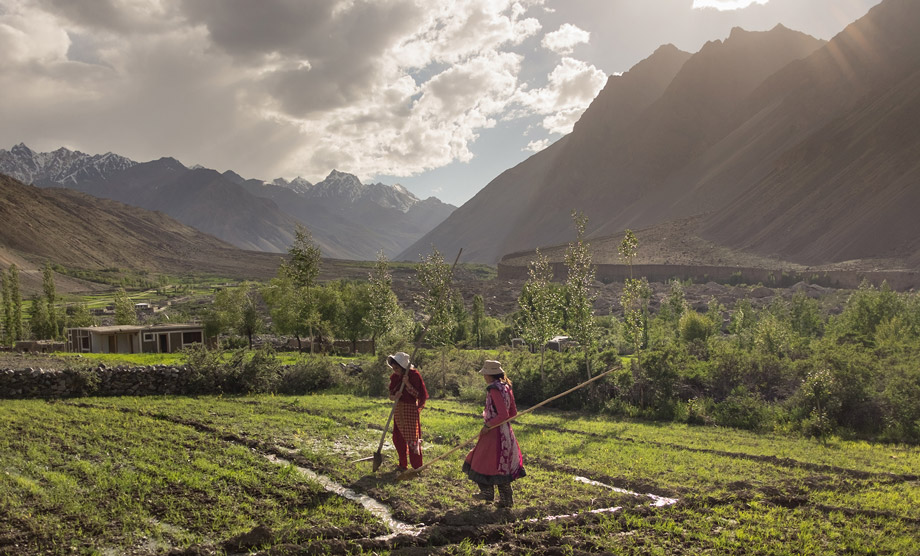
Scientists from around the world have assessed the planet's 78 mountain glacier-based water systems and ranked them in order of their importance to adjacent lowland communities, as well as their vulnerability to future environmental and socioeconomic changes.
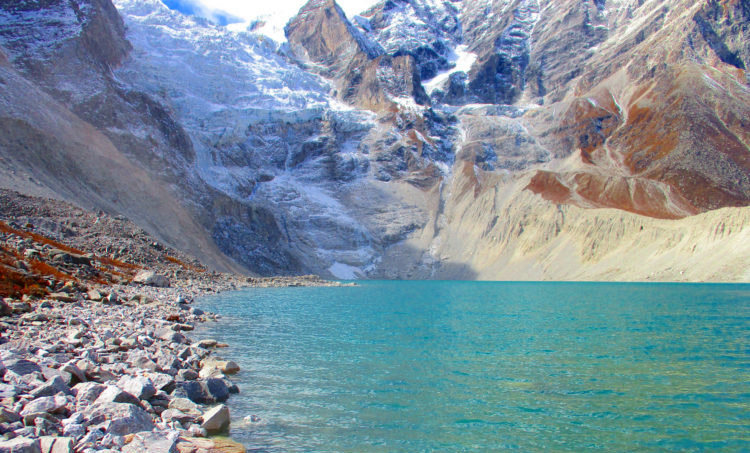
The rate glaciers are melting in the Himalaya is being significantly accelerated by lakes already formed by glacial retreat, according to recent research conducted at the University of Zurich and the University of St Andrews, Scotland, UK.

Citizen scientists collect large amounts of very valuable data, yet the quality of data is an important issue. The CrowdWater game shows a playful way to improve their accuracy.
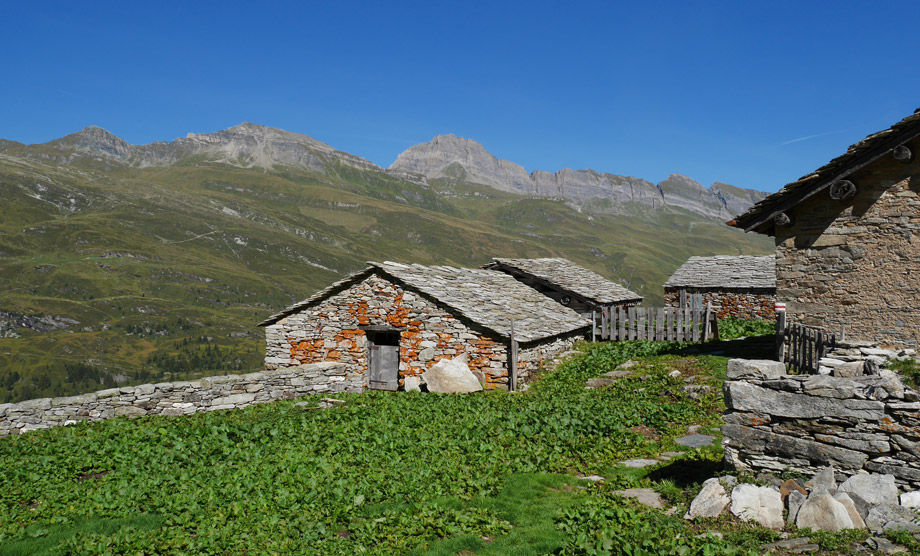
When planning a nature reserve, you have to engage in a subtle art of communication. This failed in the case of the projected Adula Park, as an ethnographic analysis has now proven.
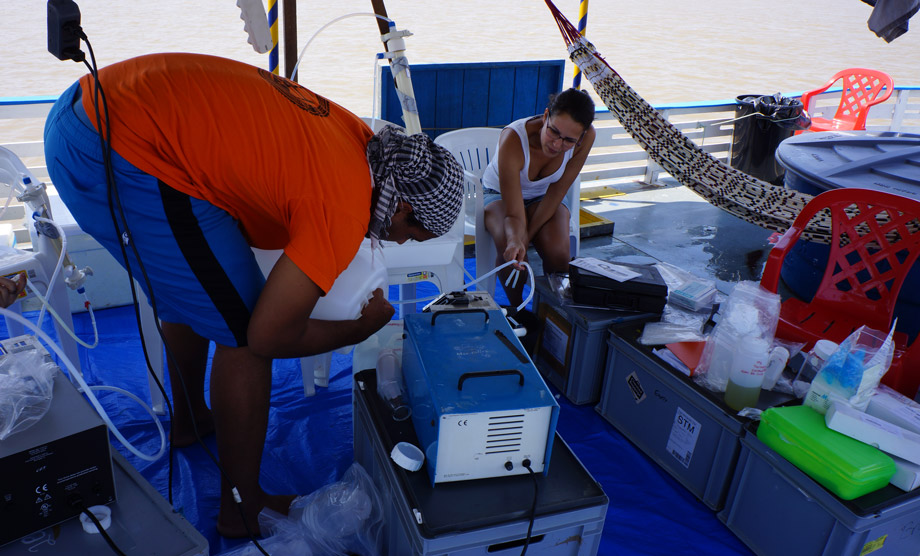
Black carbon produced by the burning of fuels and biomass is the most stable carbon compound in nature, yet its path from land to the deep ocean remains mysterious. An international research team under the lead of the Department of Geography characterized the black carbon exported by the Amazon River.
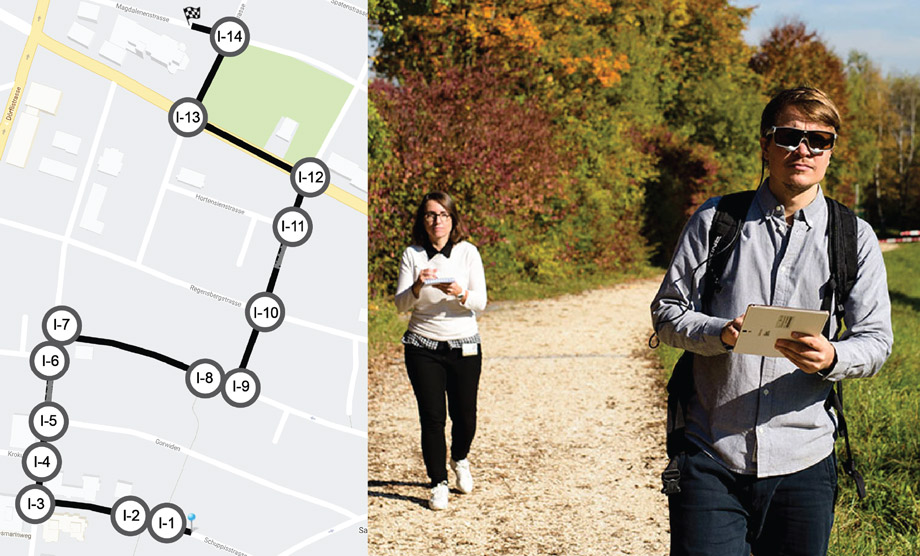
Navigation systems are ubiquitous tools, but they make us pay less attention to environment properties and thus we acquire less spatial knowledge. However, intelligent navigation systems can influence human navigation behaviour.

Smartphones as data collection instruments cause emotions. This was one of the results of the interdisciplinary project "Youth@Night". The effect of such emotions calls for a renewed scrutiny of research ethics, particularly as smartphones increasingly become part of research designs.
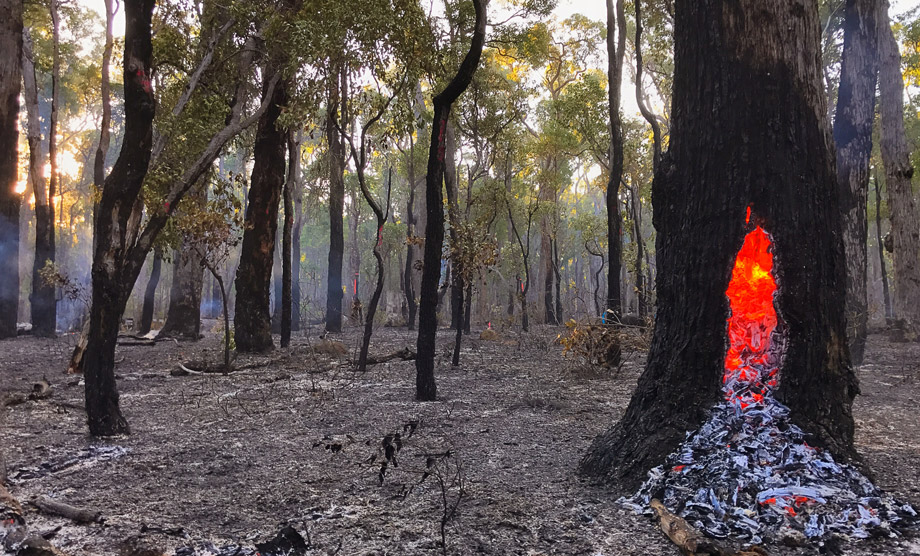
No life without fire, no light, no culture, and no landscapes. The relics of fire are present in the air, soils, sediments, rivers, and the oceans. A special issue explores the dynamics of fire-derived organic matter in terrestrial and aquatic ecosystems.
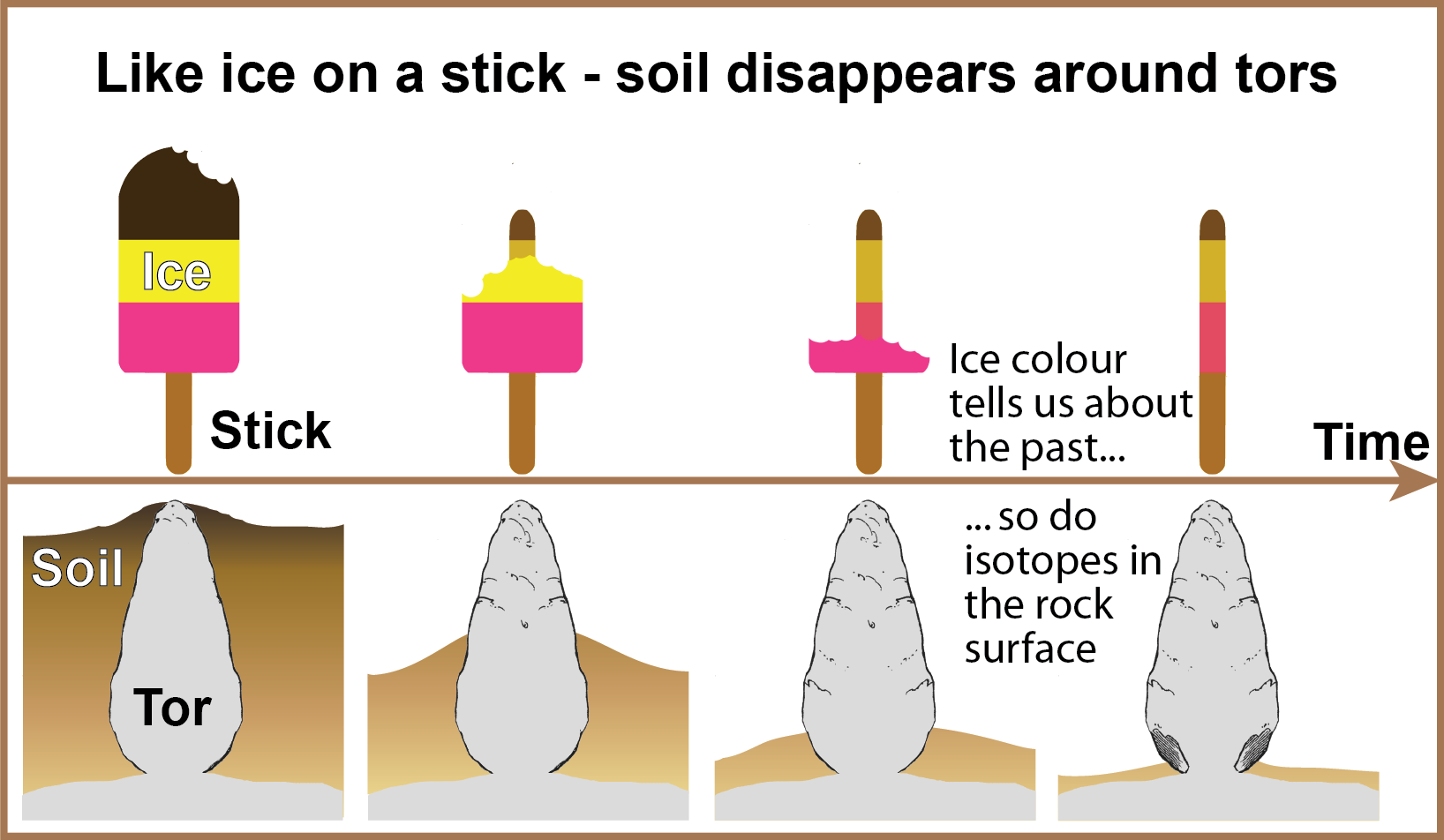
Fertile soils are one of the foundations of life on earth. According to the United Nations, one third has already been lost. Researchers at the Department of Geography have now used a new method to decipher the temporal variations in soil erosion and regeneration over the last 100,000 years in the Sila highlands of southern Italy.
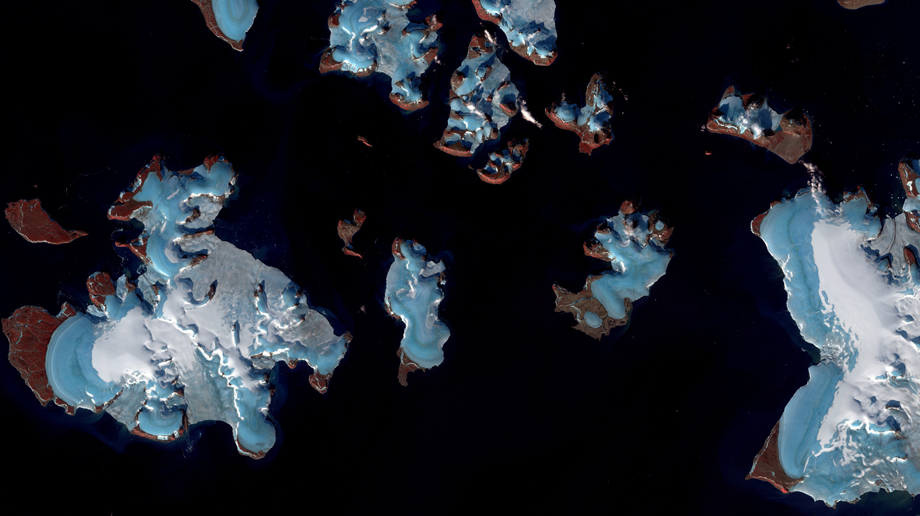
Melting ice sheets in Greenland and the Antarctic as well as ice melt from glaciers all over the world are causing sea levels to rise. Glaciers alone lost more than 9,000 billion tons of ice since 1961, raising water levels by 27 millimeters, an international research team under the lead of UZH have now found.
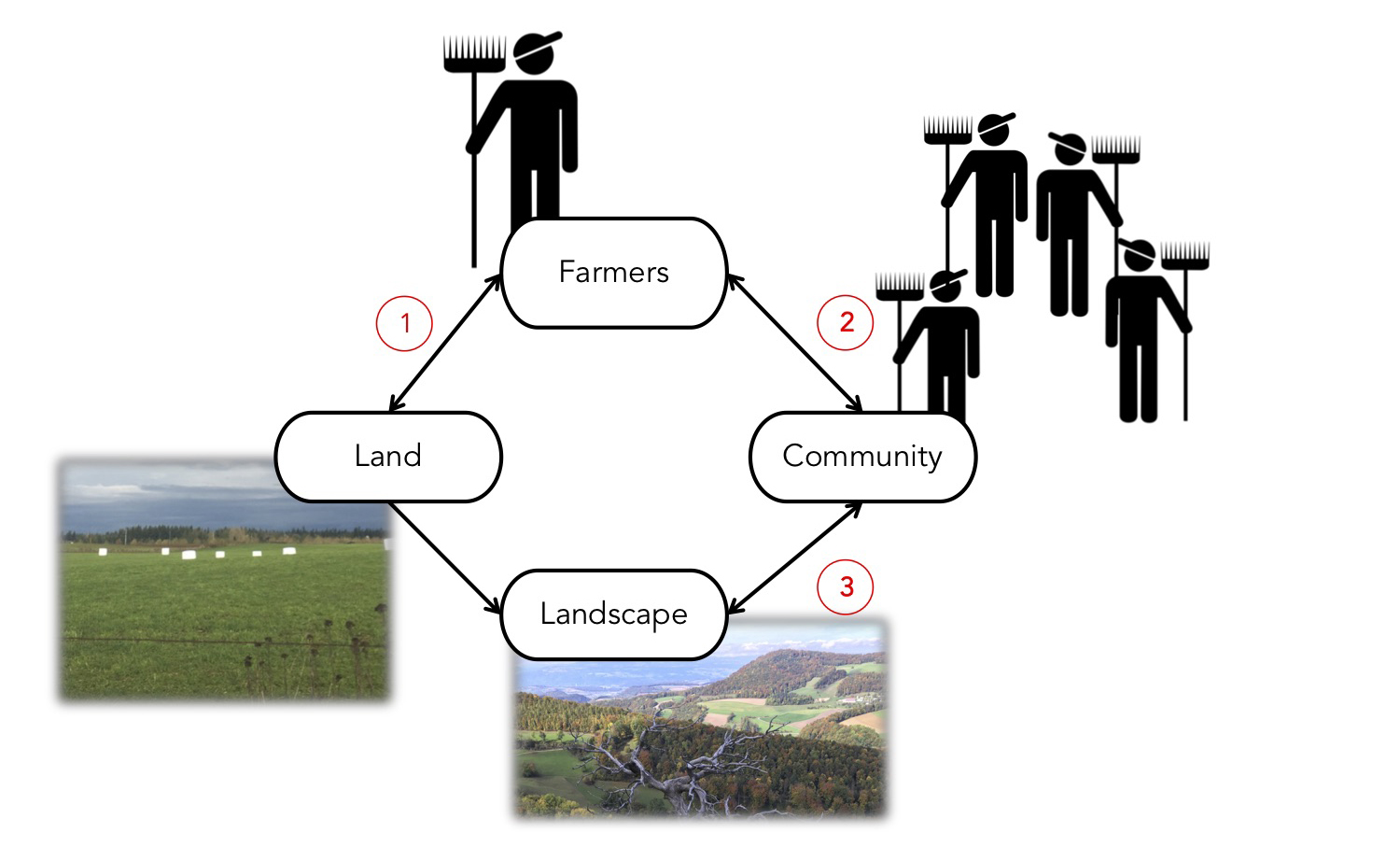
Financial incentives facilitate, but rarely motivate farmers to undertake conservation practices on their land. Instead, their values and relationships are key.
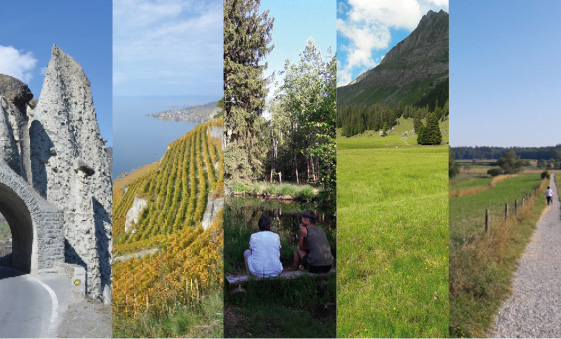
The impact of landscapes on human well-being is manifold: We appreciate the beauty, we feel we belong there, we can relax and promote our health. In five landscapes of national importance in Switzerland, researchers from the universities of Zurich and Lausanne assessed how landscape services are perceived.
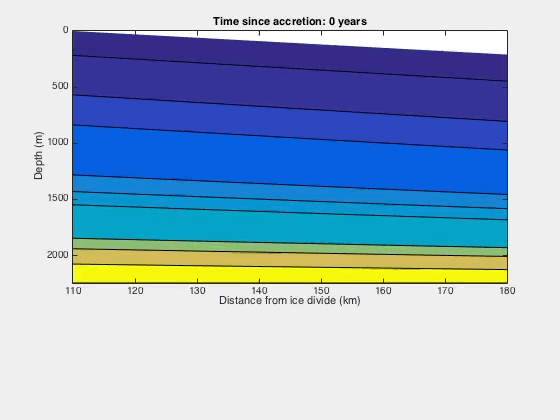
Freeze-on of water at the ice-sheet bed can explain the occurrence of the large plume-shaped ice-bodies at the base.
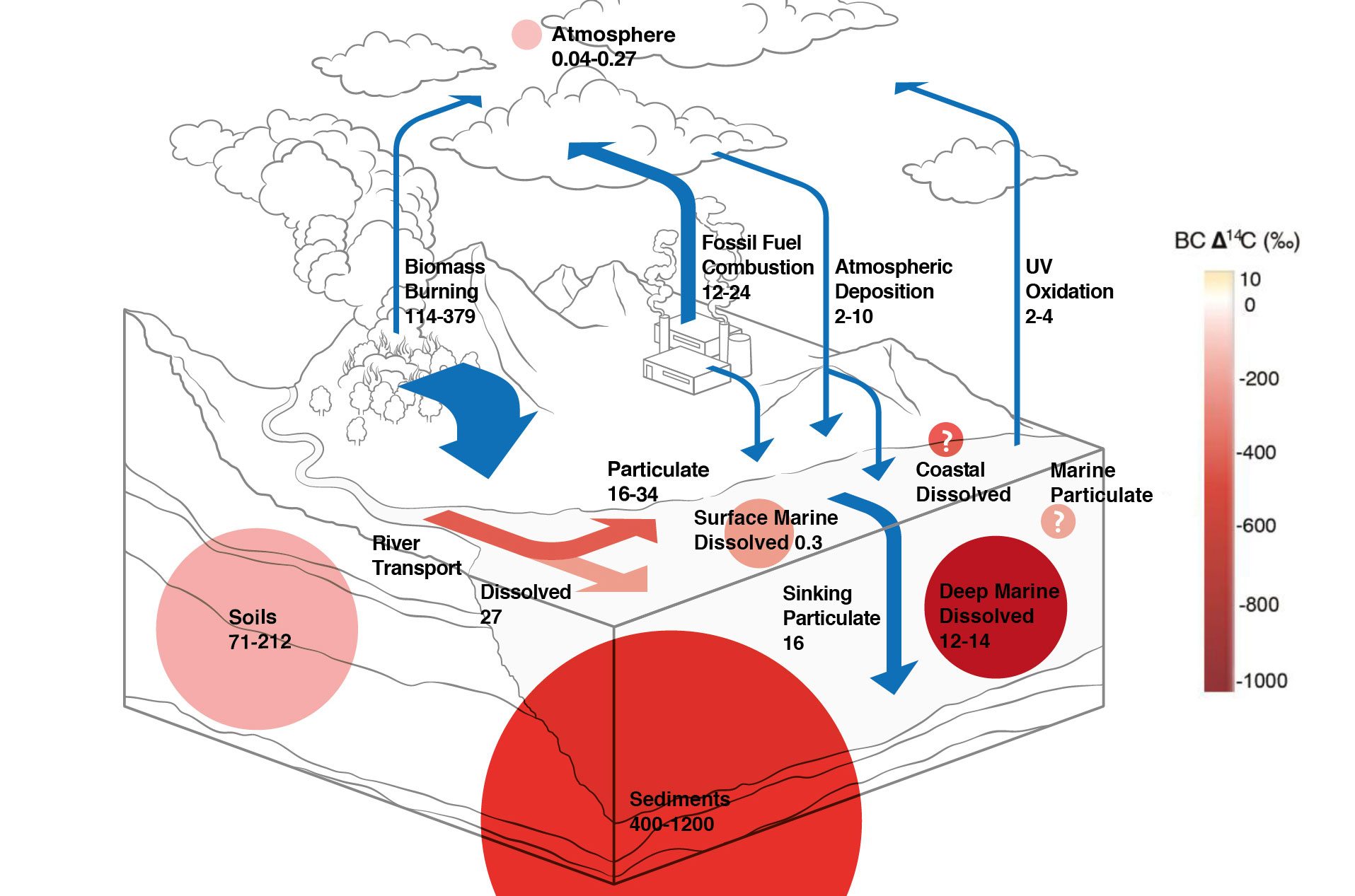
Due to its widespread occurrence and tendency to linger in the environment, black carbon may be one of the keys in predicting and mitigating global climate change. This study is the first to address the flux of black carbon in sediments by rivers on a global scale.
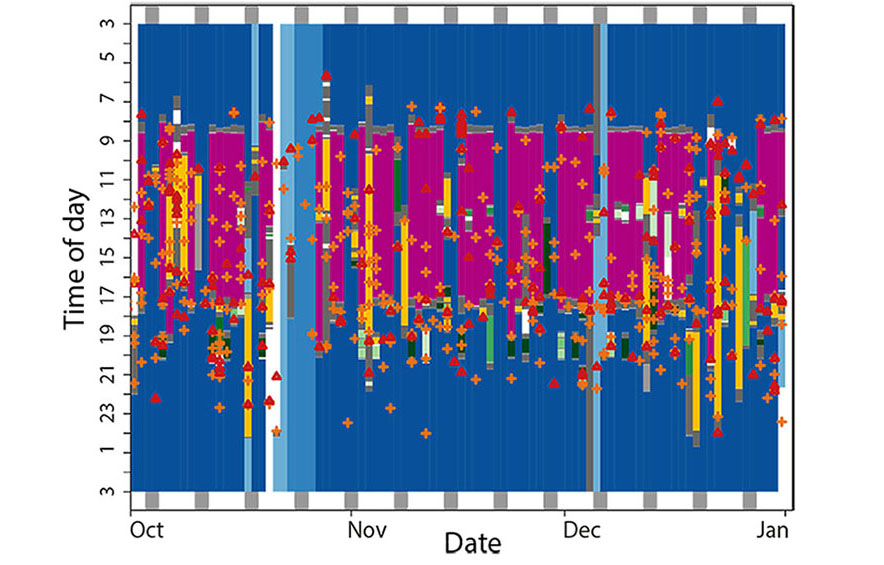
Estimating transport demand is one of the key information for city and transport planners. It is determined by origin, destination and time of the day that people move from place to place.
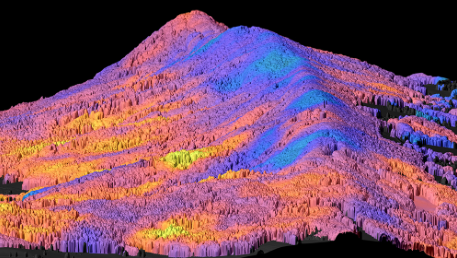
Productivity and stability of forest ecosystems strongly depend on the functional diversity of plant communities. Using airborne remote sensing the authors have developed a new method to measure and map functional diversity of forests at different scales – from individual trees to whole communities.

Drawing on ethnographic research in a center for unaccompanied minor asylum seekers (UAM) in Switzerland the authors explored the educational experiences of these young refuguees.
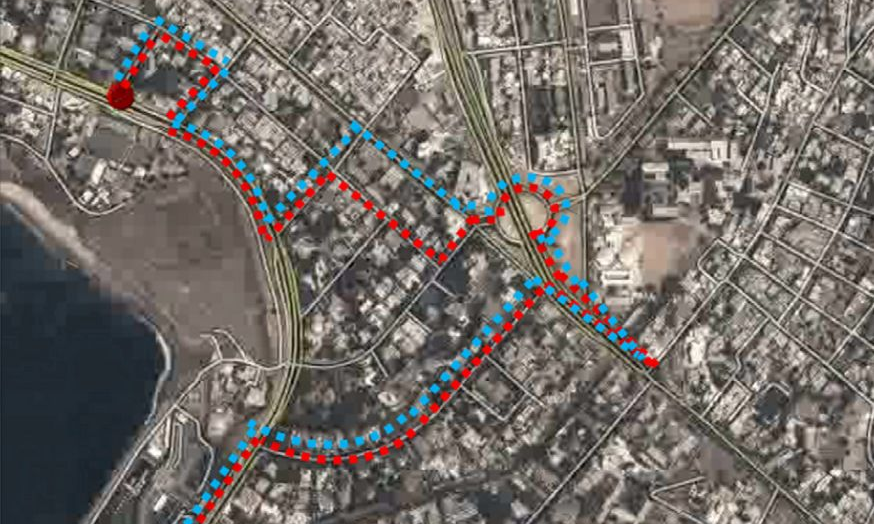
Differences in the anxiety levels and spatial abilities of individuals affect route learning from a map. In designing maps that work for various contexts and user groups it is important to understand these differences.
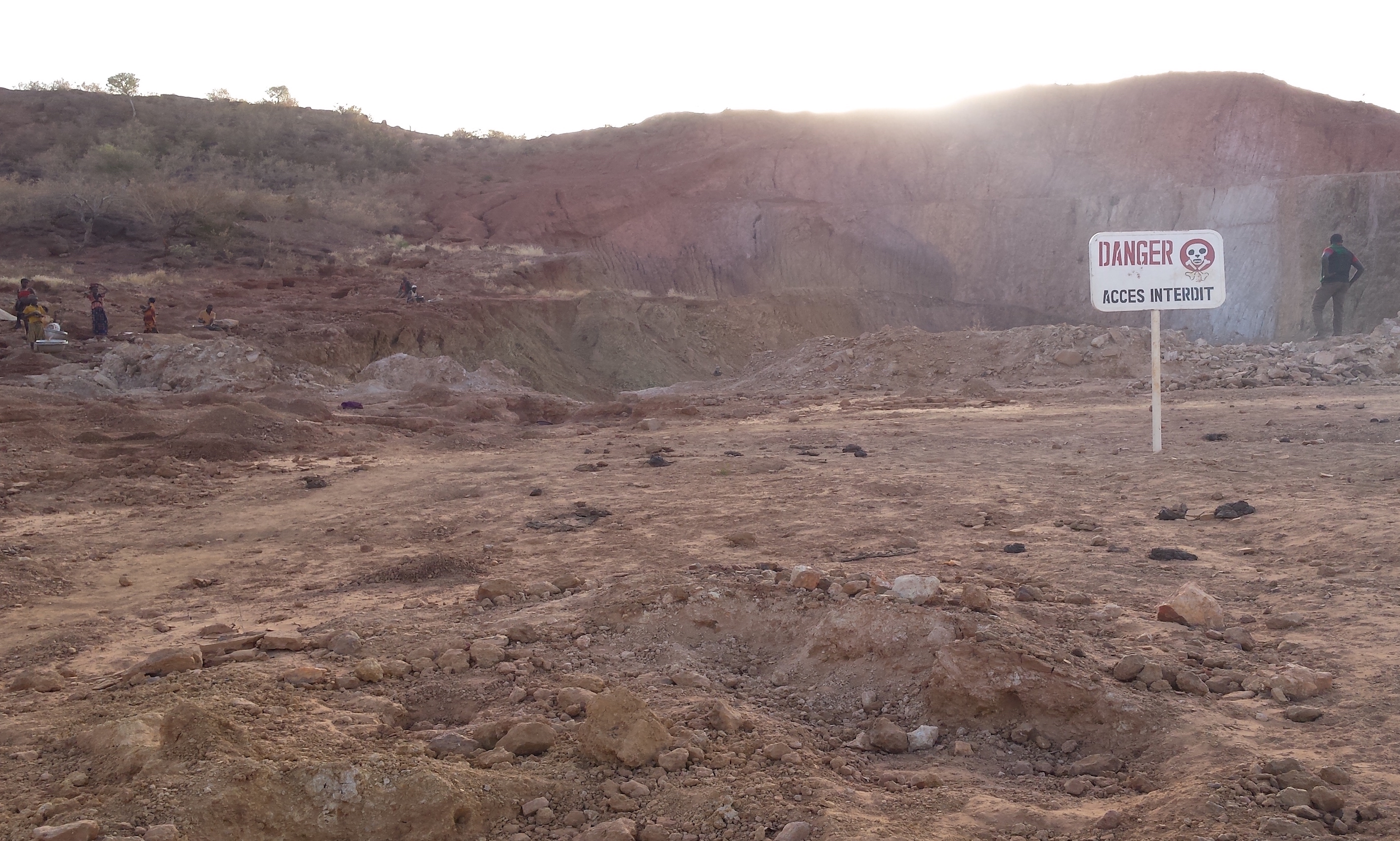
Large-scale mineral extraction projects in the global south fundamentally transform state-society relations in producing countries. Extractive enclaves evolve in the concession areas, in which commercial, traditional and national regulatory regimes entangle.
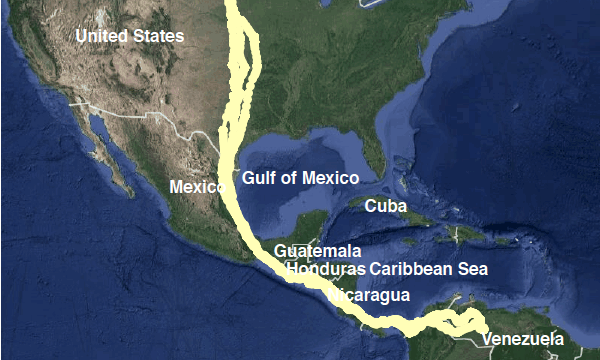
Using this new tracking technology, it has become possible to record movements of animals and automatically assign behavioral activities such as foraging, resting or flying to the tracking data.
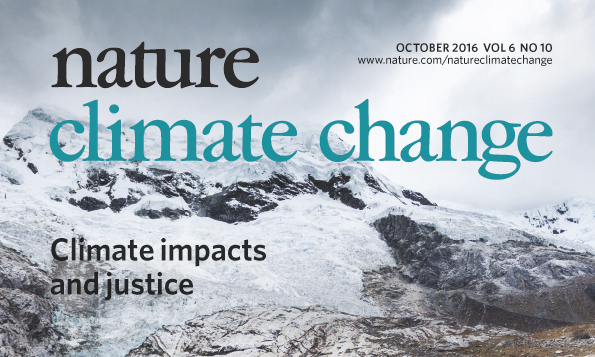
Anthropogenic climate change implies large negative effects on societies, already now and much more so in the future. Who is responsible and how can these responsibilities be considered in the international climate policy?
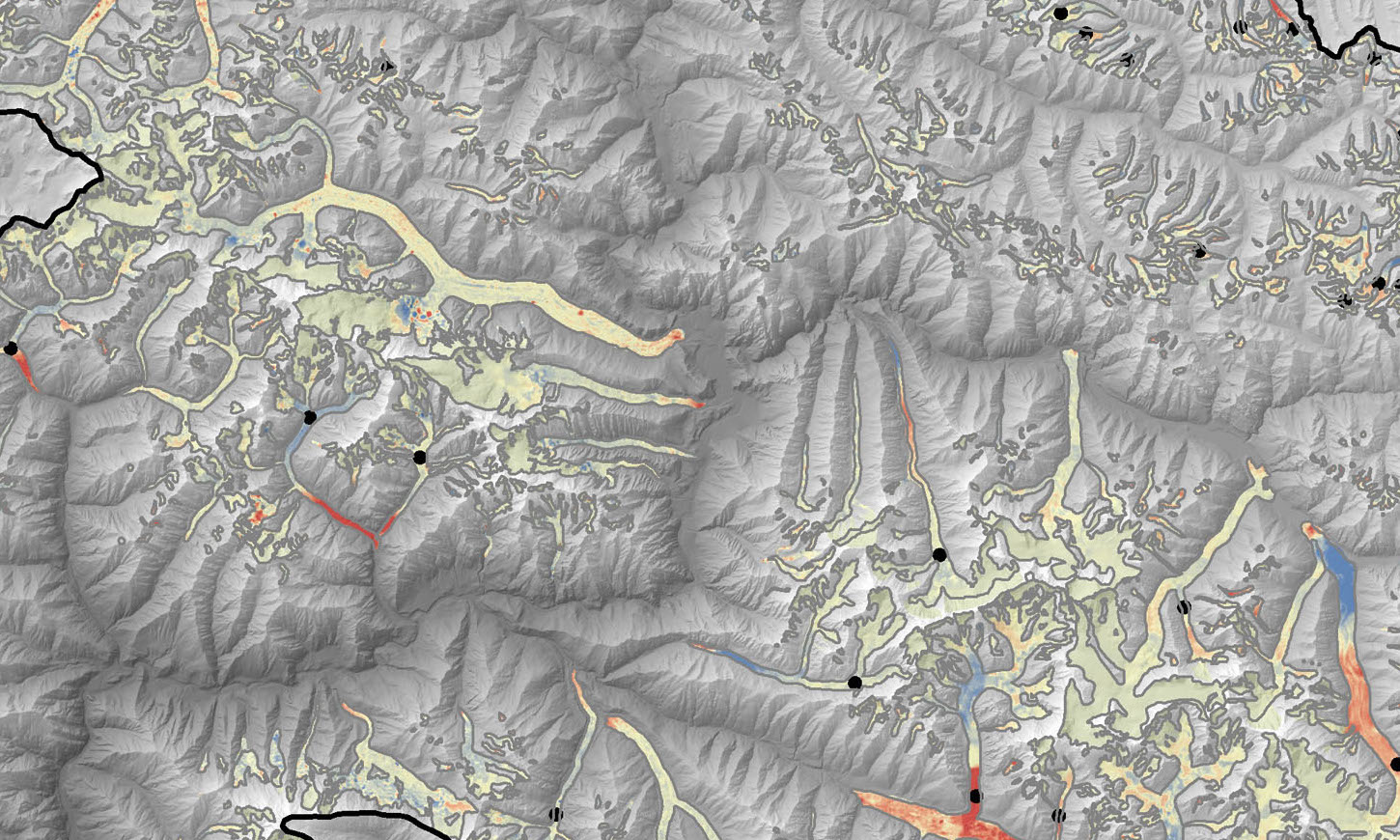
In this publication the authors used old US reconnaissance imagery to show that glaciers in the Hunza River basin, in Central Karakoram, experienced on average no significant mass changes also since the 1970s.

Mega-events such as the Olympic Games and the Football World Cup have profound effects on the politics, society and economy of the host.
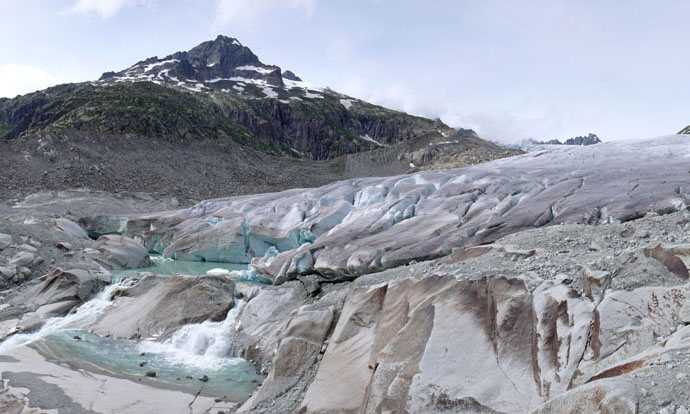
The World Glacier Monitoring Service (WGMS) has been collecting data on glaciers for more than a century.
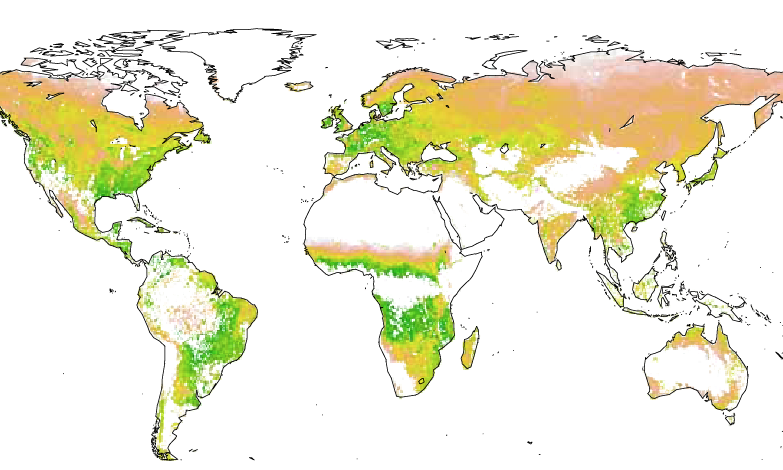
Land Surface Phenology is the study of seasonal patterns of variation in vegetated land surfaces as observed from remote sensing.

Fire-derived organic matter (charcoal-like) is considered to be one of the most persistent groups of compounds in all ecosystems. A large part of it resides in soils for centuries to millennia.

This paper analyzes a new market of 24 hour home care for elderly people where private agencies hire migrant women from Eastern European countries and sell packaged services to the elderly in Switzerland.
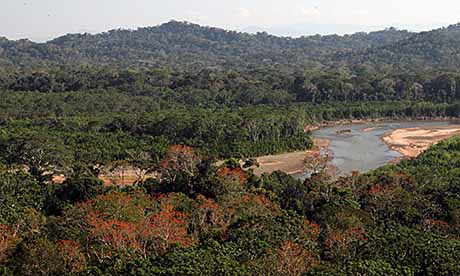
Protected area or indigenous territory? Where multiple and sometimes conflicting institutions exist, indigenous people in the Bolivian Amazon have to continuously negotiate access to resources.